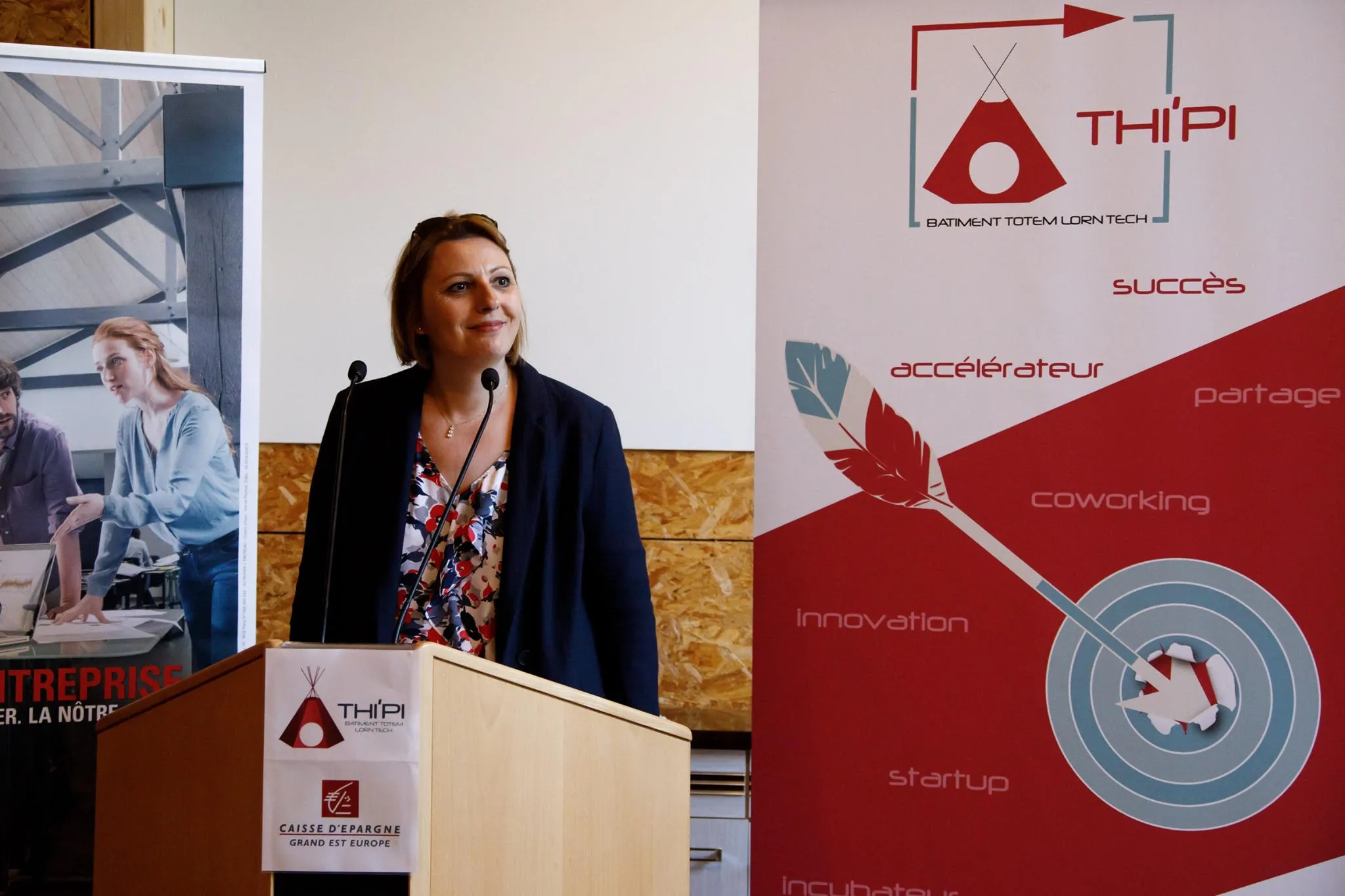Let’s Define Key Success Factors for Startups with a Startup Business Advisor from France
Table of contents
- What is a startup ecosystem for entrepreneurs and how to define its true value
- Impact of coaching and mentoring
- Coaching vs Mentoring
- How I see the importance of coaching and mentoring
- Mentoring startup business: how it starts and which are main startup challenges on the way
- Among the biggest challenges for startups today is the pandemic and economic turbulence. Any advice for startup entrepreneurs to go through a crisis?
We have never been so far away and so close to each other as we are now in 2020. It’s time when cohesion, adaptability, and mutual support rule the world.
Florence Roux-Christmann, a French startup ecosystem builder, digital transformation enabler, and co-active coach, has founded a startup accelerator program, developed a number of startup expansion strategies, and knows how to build a startup ecosystem to help entrepreneurs thrive.
Emerline has got her vision on the startup ecosystem’s value, mentoring and coaching specifics, and possible scenarios for startups to overcome global challenges.
What is a startup ecosystem for entrepreneurs and how to define its true value
I love the quote by a famous French scientist who said, “Make sure that one plus one makes three.” It’s exactly about the force of getting assistance within startup ecosystems. As a startup ecosystem coordinator, I have three missions:
- To help startups acquire new competencies;
- To support them in assessing new markets;
- To accompany them in gaining more financing.
Competencies
If you are not connected to any startup ecosystem, growing in competencies becomes trickier. Startup founders are very competent in their technical areas, but they may need assistance with the strategy, management, legal issues, software development for startups, etc.
Universities, research centers, or industrial companies are all forming the elements of startup ecosystems. The expertise of each matters, and startups join the ecosystem to build collaboration with as many members as possible.
Markets
On top of reviewing their go-to-market strategy (and checking the best product and market fit), here is also a common practice of accessing potential clients — going to the events, networking, and meeting new people. I often go there with startups to advise them how to address a specific target.
One of my major roles in the startup ecosystem is creating relationships, and if I make my staff and my partners benefit from it, that’s the key to success.
Financing
In terms of funding, it works in the same way — you need to get the trust of investors. If you succeed in building credibility, investors will definitely put your idea on top of the ‘pile’.
From my experience, the French ecosystem is much more positive to the early stage startups than Luxembourg — lots of programs, grants, and other support from the government in terms of public fundraising.
There are more funding challenges for startups when it comes to private fundraising — the early stage is quite difficult, as VCs are eagerer to help if you have a ready proof of concept. Here we discovered that digital transformation is a key to our territory, because many industrial companies need to digitalize their processes to become more competitive. I act as a trust party between startups and local companies to address the needs they all have together.
Within our ecosystem, we organize ‘speed dating’ for corporates and startups. A strong need remains to work closely with industrial, service, or e-commerce corporations.
On top of all my three missions for the ecosystem, our team has recently developed an extra one towards the youth.
We know that the entrepreneurs of tomorrow are still at school today, and as the school system doesn’t enable young people to have true links with entrepreneurs, we initiated reaching out to all schools in the area. Luckily, lots of them have turned out to be positive, and we are testing workshops with youth and teachers on innovation, startup values, entrepreneurs’ history, etc. As we help young people in their orientation process and go beyond a mere theory, they are enthusiastic in going into tech.
In short, the true value of the startup ecosystem is building a network of people so that, whatever the question is, you can find right specialists to give right answers. I have realized this startup ecosystem meaning while working at PwC's Startup Accelerator, followed this way during my startups and entrepreneurship ecosystem development in France, and now we have a continually growing network of over 500 members in there.
Impact of coaching and mentoring
Coaching vs Mentoring
I’d been mentoring startup and other multicultural or multidiscipline teams for years, and at the moment I realized I wanted to go further, I started coach trainings.
The difference between coaching and mentoring lies in the fact that a startup mentor is someone who shares his own experience directly with an individual or team; in coaching, there are no big answers, only big questions, which changes the paradigm. Sometimes it helps to behave as a mentor; sometimes coaching is preferable, depending on who is in front of you and the current context.
Behaving as a startup coach means to accompany the team on the way to finding resources and generating their own solutions.
Who am I to give advice to people? The right direction should come from them. The responsibility of a coach is building the atmosphere where a startup team feels at ease, understands all blockers, and makes decisions by themselves. 
The parallel is often made between a coach and a therapist. Coaches are not doctors working on deep childhood traumas — they are focused on future objectives and people’s empowerment to mobilize their inner resources and meet their objectives.
How I see the importance of coaching and mentoring
For me, business coaching for startups is a true way to bring them confidence. That’s the first thing. Second, a startup coach is helpful for the teams that grow rapidly. If you have launched your startup with two fellows, it’s easy to communicate between the three of you, but as soon as you are 20 people, you need to structure your interaction.
I accompany startups that have reached their critical level of recruiting many people in the shortest terms — we find out together how to stay efficient, while giving nice opportunities to all staff. This case is about coaching the dynamics between people and tricky aspects of communication. You have a ‘melting pot’ of questions to tackle, so I need to put on either a mentor hat or a coach hat depending on the team’s objectives.
Mentoring startup business: how it starts and which are main startup challenges on the way
A coach can’t help those who don’t require assistance, that’s why commonly we are focusing on people who are aware of their gaps and realize they need external assistance to unlock their potential.
Generally, we start discussing tech startups’ demands and their expectations related to the team in six months, a year, or two. Depending on their vision of the outcome, I can measure a gap between the results they want to achieve and their current state.
Startup owners come first, and then I confront their insights with the objectives of their teams to make sure they feel in the same boat and go in the same direction. Cohesion of the team is crucial to growth, and I’ve already met several examples when startups failed because of a lack of cohesion.
For instance, some teams are not feeling involved by the founders and the latter isolate themselves from their team members during difficult times, which betrays trust and creates confusion. Coaches can help the whole team define corrective measures to collectively address the issue.
The most common thing is when startups see the barriers on their way and accept that their strategy revamping is needed. Pivoting in the startup is a huge field we work on together.
Among the biggest challenges for startups today is the pandemic and economic turbulence. Any advice for startup entrepreneurs to go through a crisis?
The easiest case is a pool of startups that have developed the solutions to fit the current situation, e.g., health, mobility, or homeworking products. If they have a system to help others, they seem to get an incredible ‘opportunity’ to survive during these tough days.
But most of startups will suffer. One of the startups I know has developed a shared marketing solution for small commerce and boutiques in town. Now the owner can’t expand her business, but at least she adjusted software so that it could give the info about the commerce stores that are still open. That’s how the startuper didn’t lose visibility and, although she doesn’t earn money at the moment, she helps people. When the things get better, the startuper will benefit from the visibility she’s built.
So, if you have a chance to modify your software to make it helpful, do not miss it. Startups that are pivoting and possess a stronger capacity of adaptation and resilience will have more positive growth forecasts.
In my opinion, the first and foremost thing is the quality of teams. If due to the problems startups face, they can’t survive the crisis, great teams will always find new things to focus on or join other specialists. VCs tend to invest in the teams, not in the solutions.
The best teams will find a way out, and it’s essential for them to thoroughly work on their creativity and self-confidence. This is a major step towards building their credibility in the long run.
Published on Apr 10, 2020





